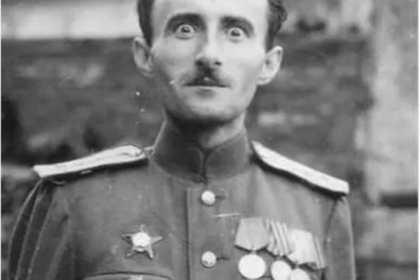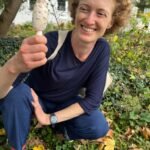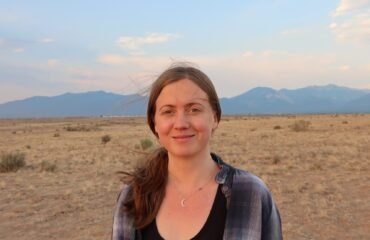
Once I was followed by a cow.
At that time I was stationed
with a division. In early morning, quiet, shtum,
making my way to the forward site, I heard:
someone coming up behind me
and wheezing like a sick man:
I turned around — it was a cow;
dappled, two horns; no distinguishing features to speak of.
May 1946
A man I had occasion to affront
was killed by a bullet through the mouth at the front.
He wasn’t picked up, wasn’t dragged out through the dirt.
The shrapnel dissolved in the Kaluga earth.
I’m a live wire.
I lived through the war.
I’m alive.
I live with my wife.
I live.
What does he remember, that man, about me?
Why is he watching
from beneath the visors of his brows?
1947
The old city was blown up by the Germans.
The sidewalks shuddered, torn to bits.
I ran through the smoking ruins.
I’m still running, never quit
run and run…
Still and quiet, head kept down,
I walk through the New City.
It’s a story taller and more pretty.
I don’t even want to see it,
can’t bear it…
29 May 1961, Dnepropetrovsk
 Ainsley Morse teaches in the Literature department at UC-San Diego and translates from Russian, Ukrainian and the languages of former Yugoslavia. Her research focuses on the literature and culture of the post-war Soviet period, particularly unofficial or “underground” poetry, as well as avant-garde aesthetics, children’s literature, and contemporary poetry. (Headshot credit: Lee Wong)
Ainsley Morse teaches in the Literature department at UC-San Diego and translates from Russian, Ukrainian and the languages of former Yugoslavia. Her research focuses on the literature and culture of the post-war Soviet period, particularly unofficial or “underground” poetry, as well as avant-garde aesthetics, children’s literature, and contemporary poetry. (Headshot credit: Lee Wong)

Philip Redko is an editor and translator based in Sofia, Bulgaria. With Ainsley Morse, he edited and translated Yuri Tynianov’s Permanent Evolution: Selected Essays on Literature, Theory and Film (ASP, 2019). (Headshot credit: Maria Vassileva)


